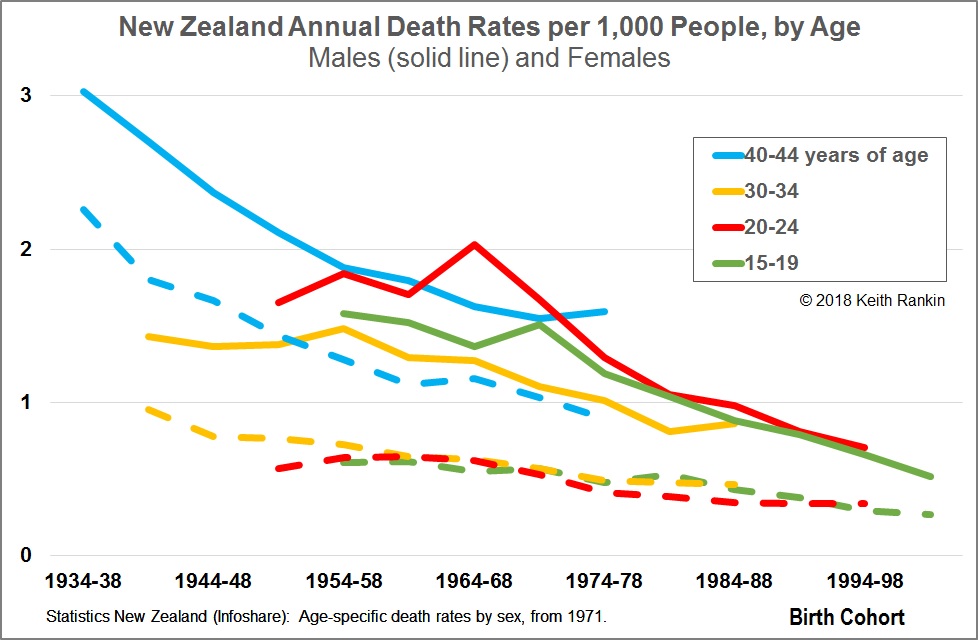Will we keep living longer? – Analysis by Keith Rankin.


A recent Economist article (Life Expectancy in America, 4 January) notes that actuarially-calculated life expectancy in the USA has fallen for the second year in a row. This is no surprise to me; nor will it be to anyone who follows health-related news stories, or who understands the insidious effects of growing wealth inequality and ever-tightening bureaucracy around income support. We are not going to have life expectancies of ninety-plus in the 2040s, as many in the retirement-finance industry would have us believe.
To what extent is the United States turning point reflected in New Zealand? A release of life-expectancy data on 19 February indicates that life-expectancy at birth of males has increased from 79.5 to 80.0 since 2012-14, and for females from 83.2 to 83.4.
I have decided to look at New Zealand death rates by age, sex and birth cohort. What is the experience of people born in the 1950s compared to those born in the 1940s? What indications are showing for younger adults today in New Zealand; people born in the 1970s and 1980s?
Looking at older New Zealanders first, we see substantial decreases in death rates for people born in the 1920s compared to the 1910s, and again for those born in the 1930s, and the 1940s. After that we see a levelling out, with death rates declining more slowly, or no longer declining at all. This is especially true for males currently aged under 60. If we look at the numbers, men born from 1954 to 1993 show slightly higher death rates for their present ages than men born five years earlier.
Female death rates are also showing signs of levelling out.
For younger adults, female death rates remain considerably lower than male rates, reflecting traditionally risky male behaviours in early adulthood. Young male death rates, which were particularly high for men born in the 1950s and 1960s, have declined substantially. (For myself, born in the 1950s, I lost a first cousin to asthma at 21, a schoolmate in a mountaineering accident at 19, and a second-cousin at 16 of kidney failure. Each case was associated with some kinds of risk-taking.) The worry, however, is that males born after 1970 are showing, in the most recent data, rising death rates for their age.
I suspect that we are at a turning point in life expectancy in the western world, with males born in the 1970s and 1980s representing the ‘canary in the mine’. The bigger cost is likely to be meeting their healthcare needs when they are in their 50s and 60s, and not the cost of their New Zealand Superannuation benefits when they are in their 90s.




